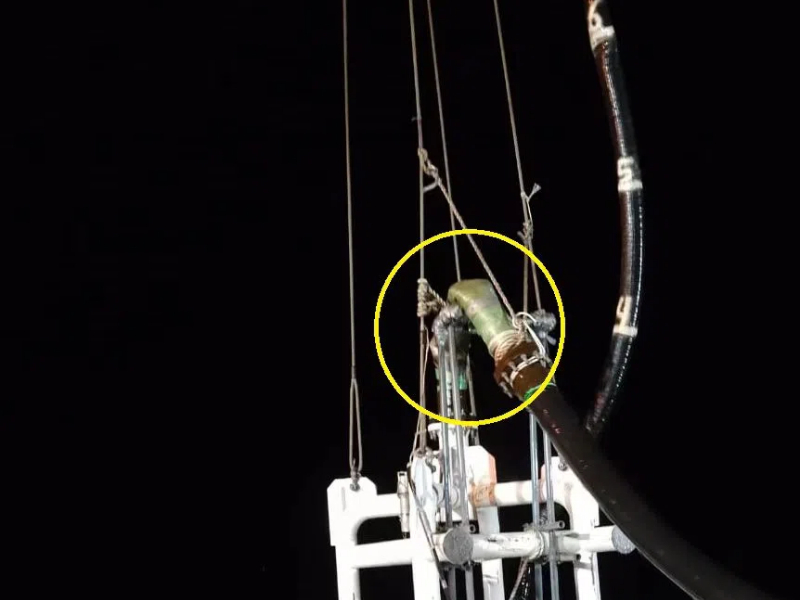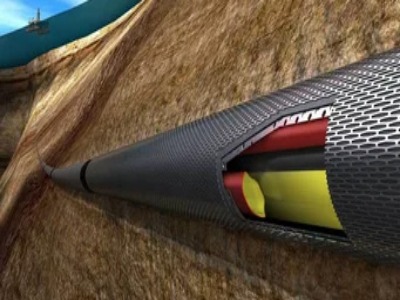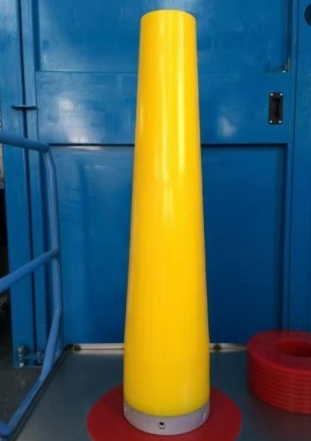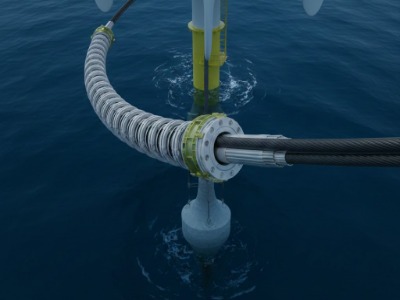Advantages of Interlocking Buoyancy Bending Limiters in Flexible Risers
Interlocking buoyancy bending limiters are common flexible riser protection devices in offshore oil and gas platforms. They prevent damage caused by excessive bending of the riser. The multi-section interlocking modules can effectively disperse the stress caused by bending when subjected to external forces. This article will discuss the interlocking design advantages of the bend limiter, the buoyancy effect, and which industries or platforms need to use bend limiter protection.

Advantages of interlocking design of bend limiters
Combination of flexibility and rigidity: The interlocking structure enables the bend limiter to have a certain degree of flexibility while maintaining high rigidity. This design enables the riser to bend appropriately when subjected to external forces, but avoids excessive bending, thereby effectively protecting the pipeline from damage.
Pressure dispersion: The interlocking module can evenly distribute the externally applied pressure, reduce the excessive force on a single module, and enhance the system's pressure resistance.
Convenient installation: The interlocking structure makes the bend limiter more convenient to install, and can be flexibly adjusted according to the specific size and shape of the flexible riser to ensure the best installation effect.
The role of buoyancy
The buoyancy of bend limiters: Modern bend limiters increase buoyancy by adjusting the density of polyurethane materials and the internal structure design, and reduce the influence of the bend limiter's own gravity on the flexible riser, thereby effectively preventing the riser from abnormal bending. The role of buoyancy can not only reduce the burden on the riser, but also help maintain the stability and positioning of the riser underwater, ensuring its normal operation in a dynamic marine environment.
Industries and platforms that require bend limiter protection
Subsea oil and gas production:
In the process of subsea oil and gas production, flexible risers are responsible for transporting oil, gas or fluids. These risers are usually exposed to strong dynamic loads such as ocean tides, waves, and ocean currents. Bend limiters can effectively limit the bending angle of the riser, prevent the pipeline from breaking or leaking due to excessive bending or twisting, and ensure the safety of oil and gas transportation.
Offshore wind power platform:
In offshore wind farms, flexible risers are used to connect wind power platforms with subsea facilities to transmit electricity or other energy. Similar to oil and gas platforms, the flexible risers of wind power platforms also need to withstand the pressure of dynamic marine environments. Bend limiters ensure the stable operation of risers in high sea conditions, extend equipment life and reduce maintenance costs.
Deep-sea cable protection:
Deep-sea cables need to connect seabed and surface equipment, and bend limiters also play a key role in this. Cables are very flexible and are prone to excessive bending, which can damage the cable insulation layer or even break the cable. Bend limiters can effectively prevent excessive bending of cables, protect the integrity of cables, and avoid the impact of cable failures.
Floating production storage and offloading (FPSO):
In FPSO platforms, flexible risers are responsible for offshore oil and gas collection and transportation. Platforms usually need to work stably in environments with strong waves and wind. Bend limiters provide necessary support for flexible risers to ensure their stability and safety in dynamic environments.

As an important bend protection accessory for flexible risers, interlocking buoyancy bend limiters can effectively protect the safety of pipelines and cables in marine engineering with their innovative interlocking design and buoyancy control advantages. It not only enhances the riser's anti-bending ability, but also reduces the burden on the pipeline through buoyancy and extends the service life of the equipment. As the requirements for adaptability to deep-sea environments in industries such as offshore oil and gas extraction and offshore wind power continue to increase, bending limiters will play a more important role in future marine engineering.




